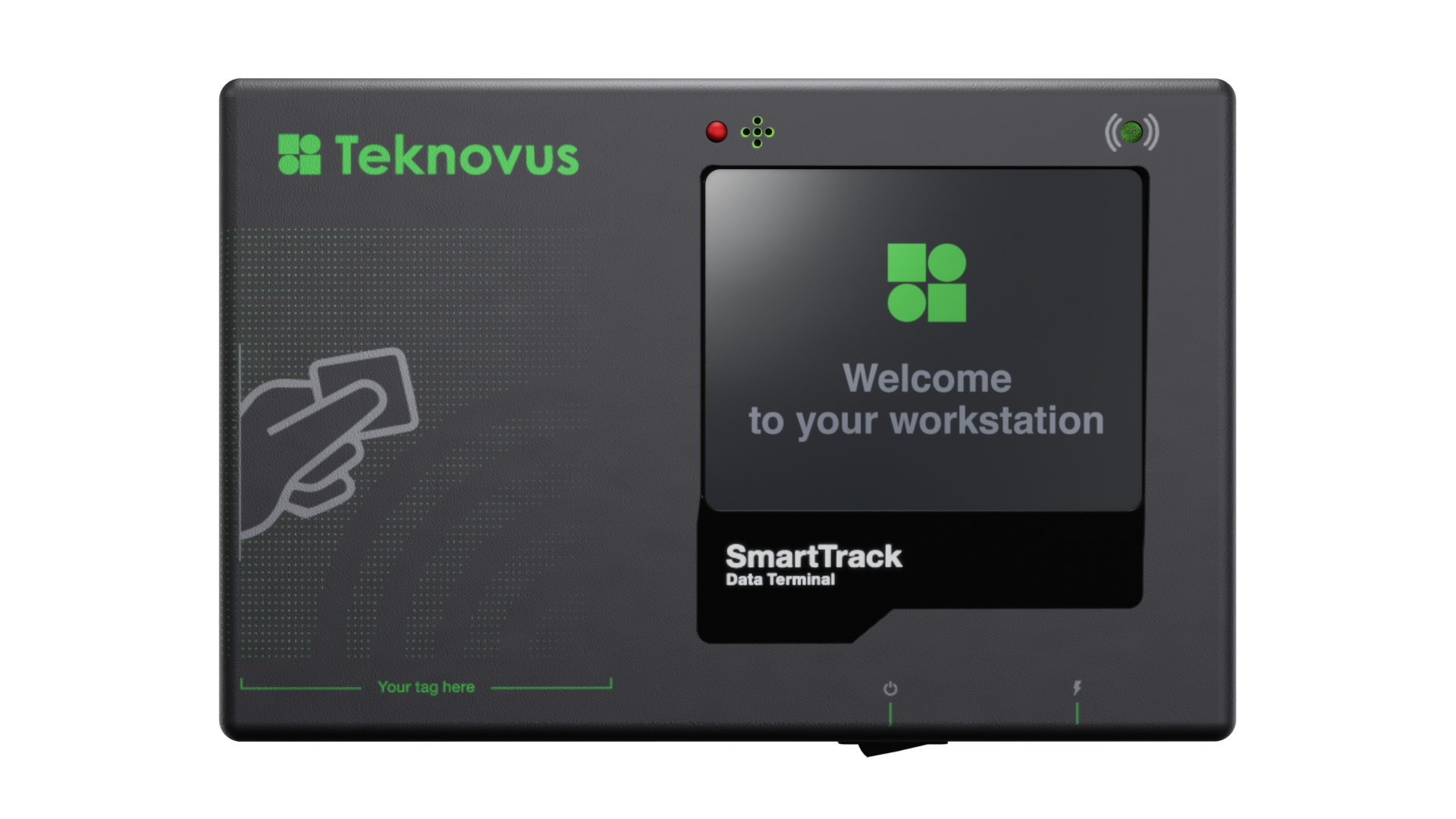
Teknovus
Interviewed by Syed Md. Rakeen, Team MBR
Teknovus brings Industrial IoT solutions to manufacturers that digitalise the factory from end to end and increase productivity to maximise profitability by harnessing the power of real-time data. They’re known to craft premium technologies that facilitate the digital transformation of industries incorporated with smart embedded devices and versatile software platforms powered by artificial intelligence. It focuses on innovating customised solutions based on the Internet of Things, also known as IoT, empowering industries as a driving force for digital transformation for businesses to align with Industry 4.0. Team MBR was in a conversation with Mr. Samiul Imran and was fortunate enough to receive his take on industrial automation and Industry 4.0.
Syed Md. Rakeen: Teknovus provides IoT solutions to industries by digitalising factories by collecting real-time shop floor data. Please share how Teknovus generates real-time insights from shop-floor data.
Samiul Imran: Our cutting-edge solution, TechRev 4.0: Smart Factory, a virtual navigation system for real- time decision making is designed specifically for RMG Industries in Bangladesh. This revolutionary system harnesses the power of IoT with our own Wi-Fi-enabled devices called SmartTrack Data Terminal. Positioned at each RMG workstation, these terminals allow workers to easily scan RFID TAGs attached to materials, instantly capturing crucial data on performance, progress, and state. The collected data is seamlessly transmitted to the cloud server, where it undergoes analysis using advanced algorithms and AI. Real-time insights are then delivered to management through our intuitive dashboard and apps, ensuring they stay informed of the shop floor’s real-time scenario. With instant alerts and notifications accessible on various devices, management gains invaluable insights directly from the heart of the operation.
Designed and developed entirely in- house by our skilled IoT team and proudly made in Bangladesh, these terminals provide tailored and efficient service for our local industries. We have meticulously designed and engineered this system from scratch, guaranteeing optimal performance and integration with existing systems.
Syed Md. Rakeen: Manufacturing plants generally follow processes where different people are assigned to different roles. Do the solutions of Teknovus facilitate real-time collaboration between various teams on the shop floor?
Samiul Imran: In labour-intensive manufacturing plants like RMG Industries, seamless collaboration among different departments is crucial. Our solution facilitates real-time collaboration through a centralised platform, enabling teams to effortlessly share data with roles and permissions according to their responsibilities. Whenever there are changes in manpower, machines, or material status, relevant individuals or groups receive notifications on their laptops, tablets, or mobile devices.
With our intuitive data visualisation and analysis tools, teams can monitor key metrics, easily spot inefficiencies using traffic light systems, and make informed decisions together. This not only enhances operational efficiency but also fosters teamwork and streamlines shopfloor operations. Through our services, industries can experience the power of seamless collaboration and optimise their manufacturing processes with our cutting- edge technologies.
Syed Md. Rakeen: Collecting manufacturing data and preventing breaches of data privacy is crucial for manufacturing plants. How does Teknovus ensure data protection and compliance as per relevant regulations?
Samiul Imran: At our company, we prioritise the implementation of comprehensive organisational and technical measures to safeguard user data. We ensure the privacy, availability, and integrity of data, protecting it from unauthorised access, disclosure, modification, or destruction. With robust encryption and secure protocols, we store data and utilise the trusted AWS cloud server, ensuring the protection of manufacturing data both during transit and at rest.
To maintain strict control over data access, we have implemented measures such as role-based access and multi-factor authentication. This ensures that only authorised personnel with appropriate permission levels can access sensitive manufacturing data. We adhere to the principle of data minimization, collecting and retaining only the necessary data, thereby reducing the potential impact of breaches.
Our organisation is fully committed to complying with all applicable data protection laws and regulations in Bangladesh, including the Bangladesh Personal Data Protection Act. Additionally, we are ready to assist our clients in fulfilling their own data protection obligations, as required by law. To promote a culture of data security, we provide training on data protection, security protocols, and data-handling procedures to ensure that all employees understand their responsibilities and actively contribute to data protection efforts.
Syed Md. Rakeen: The concept of shop-floor automation is at a nascent stage in Bangladesh, with the majority of manufacturing processes still being run manually. In your opinion, which steps are necessary to adopt full automation of the digital transformation of factories in Bangladesh?
Samiul Imran: The RMG industry in Bangladesh has long relied on the advantage of cheap labour for its competitiveness. However, productivity levels have lagged behind those of competitors. To address this challenge and unlock opportunities for improvement, implementing data automation systems is essential. These systems enable factories to optimise the utilisation of manpower, machinery, and materials.
By embracing data automation systems, factories can uncover valuable insights that pave the way for future advancements, such as robotic manufacturing. These systems lay the foundation for full automation, enabling factories to enhance their efficiency and productivity. Additionally, with the integration of IoT-based data automation systems, factories in Bangladesh can embark on a digital transformation journey, further enhancing their overall competitiveness in the industry.
Syed Md. Rakeen: According to a study conducted by the Aspire to Innovate (a2i) programme, a special programme of the Government of Bangladesh, 5.5 million people will lose their jobs in the next 10 years in Bangladesh due to the 4th Industrial Revolution (4IR). Would you kindly share how people in Bangladesh can prepare for this impending wave of industrial automation?
Samiul Imran: It is critical for people, industries, and communities in Bangladesh to get ready for the effects of industrial automation and the Fourth Industrial Revolution (4IR). Emphasis should be placed on the value of skill development through reskilling and upskilling the workers and encouraging them to retrain and upgrade their skills. Offering training opportunities and incentives are one way that development organisations and government programmes may help.
Effective cooperation between the public and private sectors, as well as between academic institutions and civil society organisations, must create comprehensive plans for addressing the effects of automation. People in our country may improve their employability, adjust to changing employment requirements, and take advantage of new possibilities brought on by the Fourth Industrial Revolution by implementing these methods.
Syed Md. Rakeen: Generally, the manufacturing plants of large organisations can avail the financial resources to invest in industrial automation to increase production levels. Can these automation solutions be availed of by both large-scale manufacturing plants and small-scale workshops?
Samiul Imran: We believe in technological inclusion. Our solutions can be availed of by both large-scale RMG and small-scale RMG. Automation solutions can vary in scale and complexity. While large-scale manufacturing plants might opt for extensive and integrated automation systems, small-scale factories can start with smaller-scale automation solutions that cater to their specific needs and budget.
We also offer “Automation as a Service” models, where businesses can lease or rent our solutions, including terminals, instead of making a large upfront investment. This allows small-scale garment manufacturers to access automation technology without significant capital expenditure and benefit from maintenance and support services.
Syed Md. Rakeen: The existing employees in manufacturing plants are expected to require time to get accustomed to the tools and processes of industrial automation. How does Teknovus ensure seamless integration of its product offerings with the current manufacturing systems of organisations?
Samiul Imran: At Teknovus, we prioritise close collaboration with organisations, taking the time to understand their unique management and manufacturing systems. This allows us to develop tailored solutions that address their specific needs. Through thorough consultation, pilot testing, and trial runs, we ensure the effectiveness of our products before implementation. This customization guarantees seamless integration with their existing manufacturing systems, leading to optimised efficiency and minimal disruptions.
Currently, RMG management dedicates a significant portion of their time to manually preparing numerous reports using spreadsheets. This laborious task involves hours of collecting and organising data. However, with our TechRev 4.0: Smart Factory solution, we automate the entire reporting process for management. Our interactive dashboards and reporting tools provide real-time data insights, eliminating the need for manual report generation.
To ensure a successful transition, we provide comprehensive training and ongoing support. This empowers employees to adapt to the new tools and processes effectively, maximising the value and benefits of our solutions.
Syed Md. Rakeen: Manufacturing plants often come across unpredictable day-to-day problems, leading to operational inefficiencies and lengthy delays. Can Teknovus provide real-time alerts to its users if certain shopfloor parameters are crossed?
Samiul Imran: Our cutting-edge product, TechRev 4.0: Smart Factory, is tailored to meet the specific needs of RMG industries in Bangladesh. It excels at efficiently collecting accurate data from multiple sources on the shop floor. Utilising advanced algorithms, it analyses this data in real- time to identify and flag any issues.
When a problem arises, such as a critical key performance indicator exceeding its permitted range, our system instantly notifies management. These notifications are delivered through various channels, including in-app notifications, SMS messages, and emails. By receiving immediate alerts, management can swiftly respond to the situation, taking proactive measures to address the issue before it escalates.
This rapid notification system ensures that potential disruptions are minimised, allowing for improved operational efficiency throughout the factory. With TechRev 4.0: Smart Factory, RMG industries can achieve timely problem resolution and optimise their overall performance.


Shades of Brilliance: A Deep Dive into the Paints & Coatings Industry of Bangladesh
The paints and coatings industry has consistently registered an annual growth rate of 6% owing to significant industrialisation, urbanisation, and economic development in Bangladesh. Synonymous with the beautification of structures, it also plays a crucial role in increasing longevity as well as protecting important infrastructure. As reported by Statista, a leading statistics portal based in Germany, the global market size of the paints and coatings industry was estimated to be USD 160 billion in 2021, and it is forecasted to reach USD 235 billion by 2029.
Generating a yearly revenue of around BDT 7 billion for Bangladesh, the sector currently employs over 100,000 individuals. The industry is largely dominated by multinational companies, with the lion’s share of the USD 471 million market size in Bangladesh, as per a global information source named Coatings World. An increase in per capita income coupled with rising consumption patterns in both urban and rural areas has given this sector a thrust to build on its already promising growth.
Increasing prices of raw materials in international markets and the depreciation of local currency have recently impeded the industry’s upward trajectory to a large extent. Despite the global economic turbulence, the industry can experience a sharp increase in the coming years through infrastructural development and the growing automotive and construction sectors. Certainly, economic recovery can help the industry rebound to its previous levels of growth and grow in stature in the future.
Md. Shah Jalal
Editor
IDLC Monthly Business Review
Download View